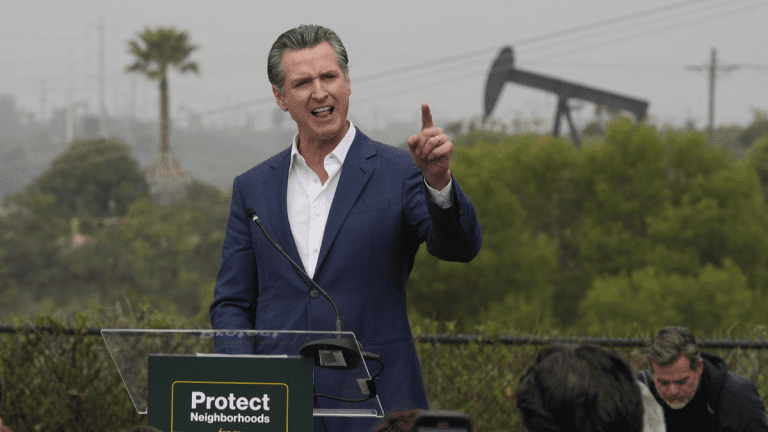
🕒 Last updated on August 19, 2025
California has long been seen as the U.S. leader in combating climate change. The state has set some of the toughest laws on oil and gas companies and pushed for more electric cars, renewable power, and clean energy. The message was clear: the future should move away from fossil fuels.
California’s Clean Energy Push Meets Harsh Reality
But that story has taken a sudden turn. Two of the state’s last major oil refineries are shutting down earlier than expected. These closures have thrown California into a crisis. Experts are warning that gas prices could rise sharply, with some predictions suggesting they might even cross $8 per gallon.
Such an increase is a big problem for a state that still uses a lot of gasoline and jet fuel. The nation’s second-largest consumer of gasoline is California. Losing refining capacity means the state would have to import more fuel from overseas, which is often more costly. With families already facing higher bills, the risk of even more expensive gas has created panic in the state capital.
This crisis has forced the governor, who just months ago was accusing oil companies of cheating consumers, to rethink his strategy. He is currently in discussions to increase oil production in California rather than arguing with the oil sector.
🐙 Jellyfish swarm shuts down four nuclear reactors in France — nature’s soft assassins strike again
From Fighting Oil to Working With It
The shift is striking. Just last year, state leaders passed new laws to keep a close watch on oil companies and even talked about punishing them for making too much profit. They also supported strict rules on drilling and aimed to push more oil out of the ground permanently.
But the closures of two key refineries changed everything. Without those facilities, California would have fewer places to turn crude oil into fuel. That creates fears of shortages and higher costs for drivers.
Now, plans are on the table to allow more drilling in Kern County, the state’s biggest oil-producing region. Lawmakers are considering fast-tracking approvals for new wells, making it easier for companies to pump oil locally. Supporters say this would help keep prices stable and reduce dependence on foreign countries for fuel.
At the same time, officials are weighing whether to delay some of the recent laws that put tighter controls on oil refiners. This includes rules around profit penalties and refinery maintenance oversight. These changes would be a major win for the oil industry, which has long complained that California’s rules are too strict.
Hottest Month, Highest Costs: How Climate Extremes in July 2025 Shook the Global Economy
While the new direction is being debated, environmental groups are raising concerns. They argue that giving oil companies more freedom will hurt the air and water in local communities, especially those near oil fields. Critics say that easing regulations now would undo years of progress on climate goals.
Tense Debate Over California’s Energy Future
The debate inside the state capital is intense. Some lawmakers feel the state has no choice but to act quickly to avoid a fuel crisis. Others worry that this new approach is too close to an “oil industry wish list.”
Industry leaders argue that drilling more oil locally is better for Californians. They say importing fuel from other countries is costly and comes with fewer protections for workers and the environment. They also warn that if production falls too low, it could even force pipelines to shut down.
📡 From war to daily life: Israel-Iran clash leaves Tehran stranded without GPS
Community organizations and health advocates, however, are concerned. They point out that neighborhoods close to drilling sites already suffer from higher asthma and cancer risks. They fear that allowing more oil projects would worsen these problems.
Despite the pushback, momentum is building for a deal that could expand drilling. Legislators are under pressure to act before their session ends in mid-September. The discussions also overlap with California’s broader climate policies, like its cap-and-trade system that controls carbon pollution.
For now, what’s clear is that California’s energy story has taken a surprising turn. A state that once stood firm against oil is now preparing to rely on it once again. The sudden change shows how quickly politics can shift when prices at the pump threaten everyday life.